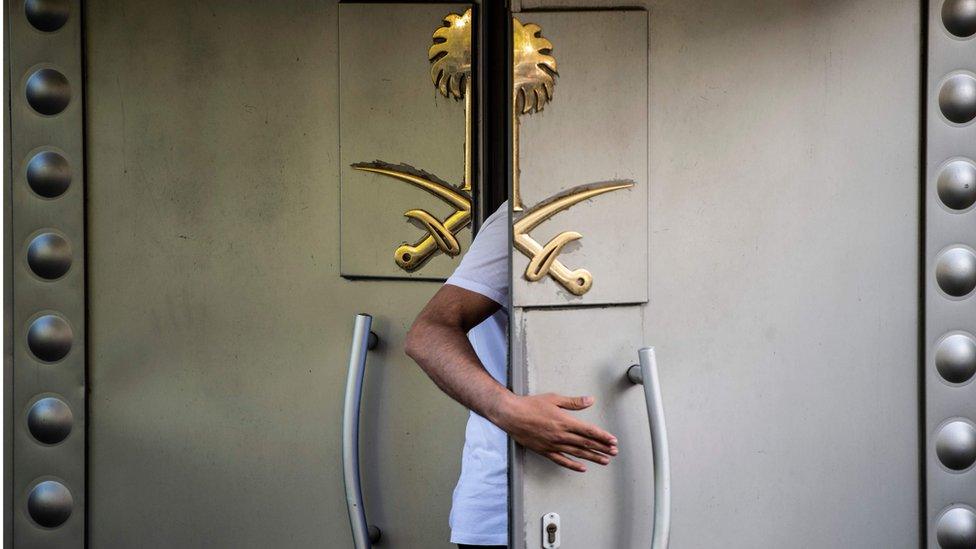Jamal Khashoggi: Turkey widens search for clues to disappearance
- Published
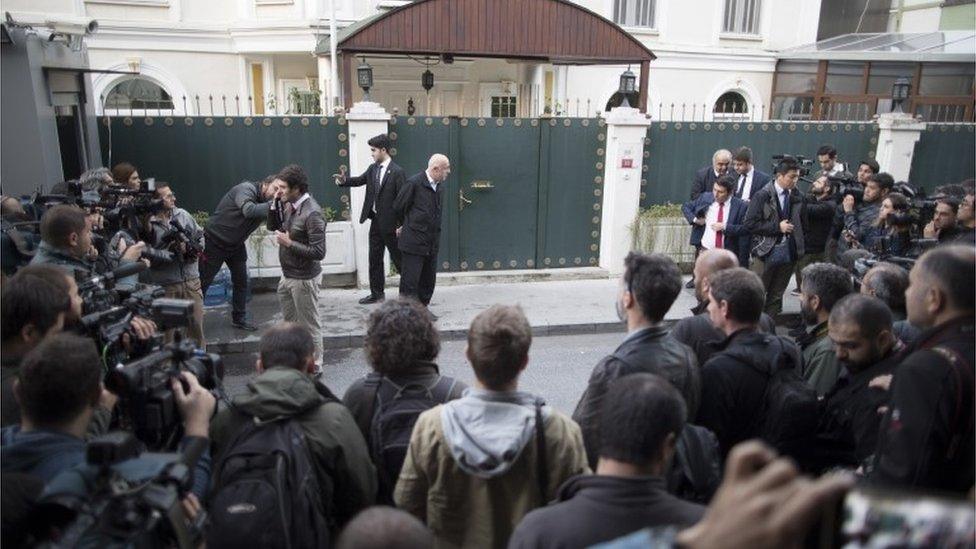
The Saudi consul's residence is now at the centre of investigations
Turkey is widening its search for clues to the disappearance of Saudi journalist Jamal Khashoggi to include the Saudi consul's Istanbul residence.
The consulate itself, where Mr Khashoggi was last seen on 2 October, was searched by Turkish investigators on Monday for the first time.
The consul, Mohammad al-Otaibi has now left Turkey, local media report.
Pressure is growing on Saudi Arabia to give a full explanation of what happened to Mr Khashoggi.
US Secretary of State Mike Pompeo has been meeting Saudi leaders in Riyadh and is expected in Turkey later.
Turkish officials believe Mr Khashoggi was murdered by Saudi agents, but the Saudis have denied this.
Overnight, Turkish police completed a search of the consulate after being allowed in by Saudi authorities.
But, according to Turkish media, Mr al-Otaibi left Turkey on a commercial flight bound for Saudi Arabia hours before his official residence was due to be searched.
The decision to widen the search was announced to reporters by Foreign Minister Mevlut Cavusoglu, who added that he had received no "confession" from the Saudis.
Turkish sources released security video last week of cars with diplomatic plates driving between the consulate and the consul's residence on the day Mr Khashoggi was last seen.
What has come out of the Pompeo meeting?
The secretary of state has been meeting King Salman, the powerful Crown Prince Mohammed Bin Salman and Foreign Minister Adel al-Jubeir in Riyadh.
Mr Pompeo thanked the king for his "commitment to a thorough, transparent investigation", state department spokeswoman Heather Nauert said.
The crown prince also agreed on the need for an investigation that "provides answers", she said.
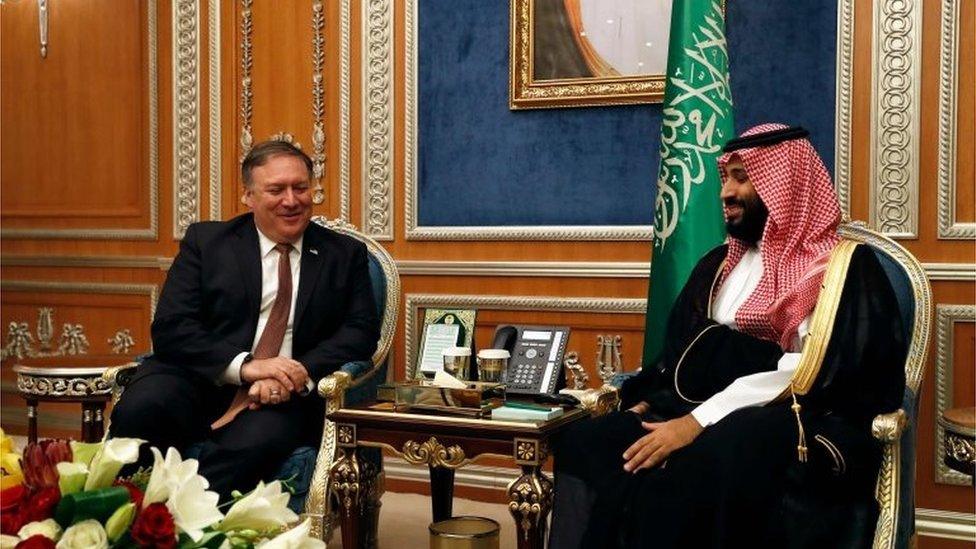
Mr Pompeo and the crown prince agreed on the need for a thorough investigation
The secretary of state was dispatched to Riyadh on Monday after Mr Trump spoke to King Salman on the phone.
According to Mr Trump, King Salman denied "any knowledge of whatever may have happened 'to our Saudi Arabian citizen'."
The president described the denial as "very, very strong" and raised the possibility that "rogue killers" may have been involved.
A leading Republican senator and defender of US-Saudi links, Lindsey Graham, has been highly critical of the Saudi crown prince.
"This guy's gotta go," he said on Tuesday morning, describing the heir apparent as a "wrecking ball".

Reputations may be forever tainted
By Frank Gardner, BBC News
The recent, highly charged exchange of words between Washington and Riyadh now appears to have given way to a mutual search for the least bad explanation. Both countries' leaders know they have an enormous amount to lose if this affair ends up splitting apart their 73-year-old strategic partnership.
Iran, as the regional rival to Saudi Arabia, would be the prime beneficiary if the Saudis were to lose their defensive US umbrella. President Trump is also correct when he says thousands of US jobs would be lost, with China and Russia to be among those lining up to replace them.
Which begs the wider question: is the West's relationship with Saudi Arabia so important that it outweighs the need to condemn and punish what many believe was a state-sponsored murder of a journalist inside a consulate?
Hence the urgent dispatching of US secretary of state for talks with the Saudi leadership. In private there may well be some strong words, in public both countries may want to present a united stand. But one thing is certain: whatever narrative emerges, the international reputation of the Saudi crown prince and power-behind-the-throne Mohammed Bin Salman will forever be tainted by this affair.

What has the consulate search revealed?
It is still not clear. But unnamed official appears to have told the Associated Press that police found "certain evidence" showing Mr Khashoggi was killed there. No further details were given.
For the first time since the journalist disappeared two weeks ago, Turkish investigators were allowed to enter the building.
Turkish President Recep Tayyip Erdogan gave a further insight into the direction the investigation is taking when he spoke to reporters in parliament.
"My hope is that we can reach conclusions that will give us a reasonable opinion as soon as possible, because the investigation is looking into many things such as toxic materials and those materials being removed by painting them over," he said.
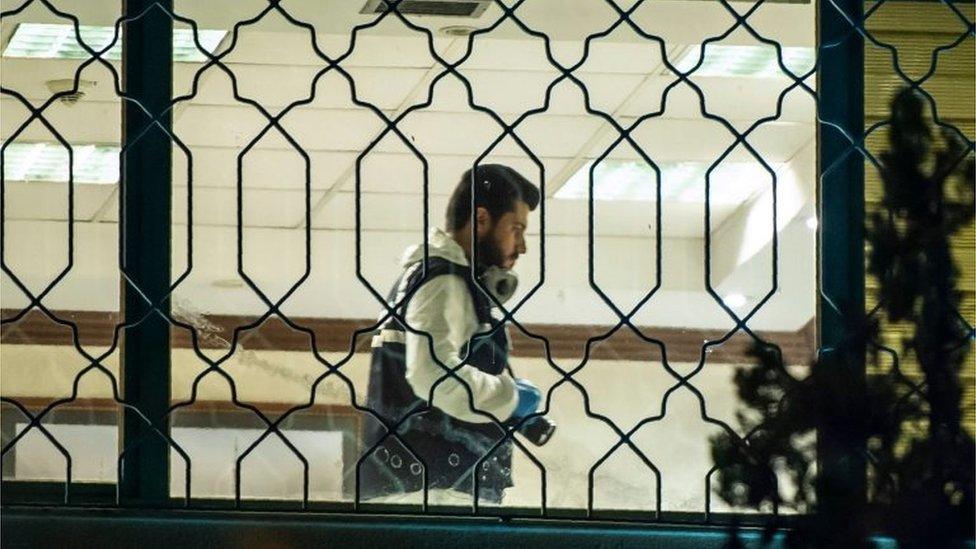
The search of the consulate went into the early hours of Tuesday
A group of Saudi officials entered first on Monday, followed roughly an hour later by Turkish forensic police.
The Turkish investigators - some wearing overalls, gloves and covered shoes - stayed for about nine hours, leaving in the early hours of Tuesday.
They reportedly took with them samples, including of soil from the consulate garden and a metal gate.
What are US media reporting?
The New York Times and CNN, quoting unnamed sources, reported that Saudi Arabia would acknowledge that Mr Khashoggi's death was the result of an interrogation that went wrong.
The intention had been only to abduct him from Turkey, the sources said.
This may explain in part Mr Trump's "rogue killers" line, though it would still leave questions unanswered.
CNN said the Saudis may argue the operation was conducted without clearance, external and those responsible would be held accountable.
The Khashoggi family in Saudi Arabia issued a statement calling for an "independent and impartial international commission".
What allegedly happened in Istanbul?
CCTV footage shows missing Saudi journalist Jamal Khashoggi entering the Saudi consulate in Istanbul.
Mr Khashoggi, a critic of the Saudi government who has written for the Washington Post, was last seen walking into the consulate.
Reports suggest an assault and struggle took place in the consulate after Mr Khashoggi went to get paperwork for his forthcoming marriage.
Turkish sources allege he was killed by a 15-strong team of Saudi agents but Riyadh initially insisted that he had left the consulate unharmed.
Mr Khashoggi was once an adviser to the Saudi royal family but fell out of favour with the country's rulers and went into self-imposed exile. He had obtained US residency.
- Published11 October 2018
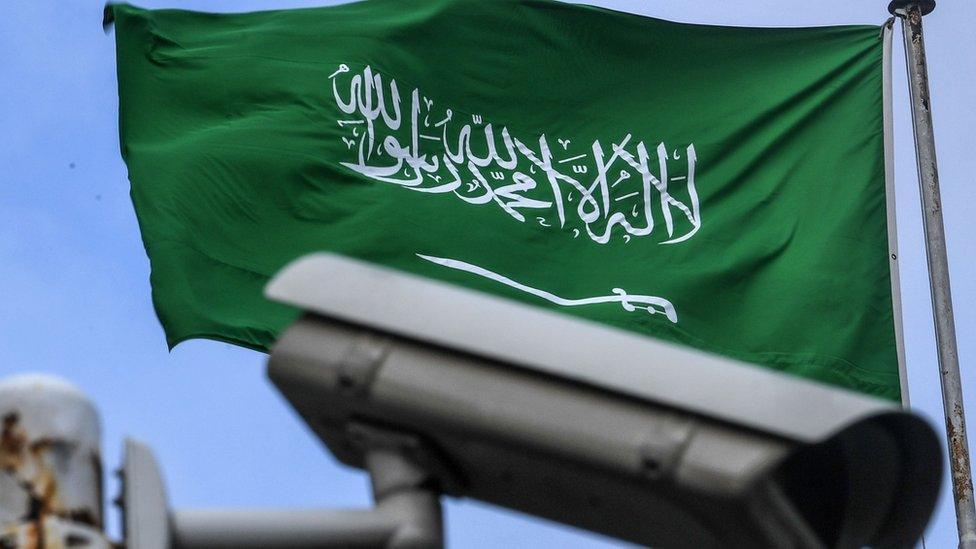
- Published12 October 2018
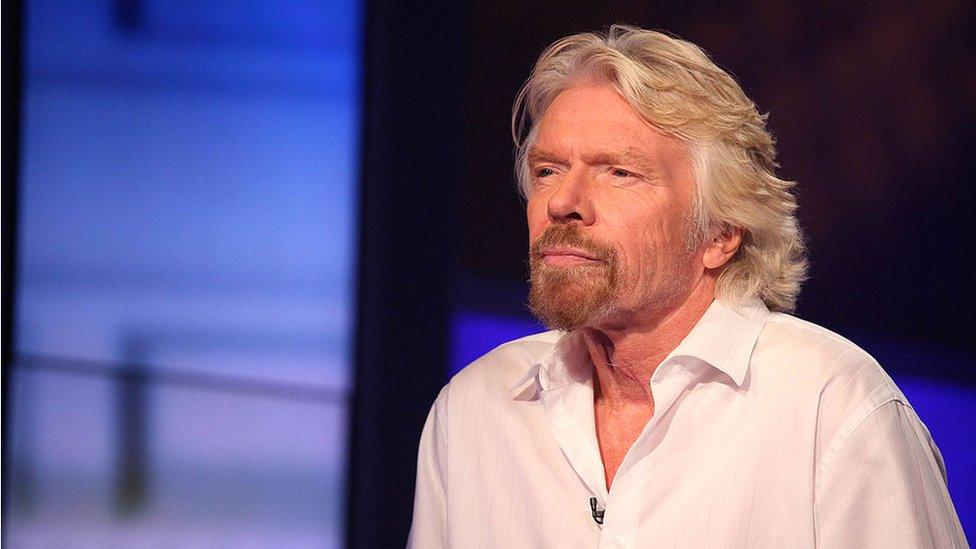
- Published10 October 2018
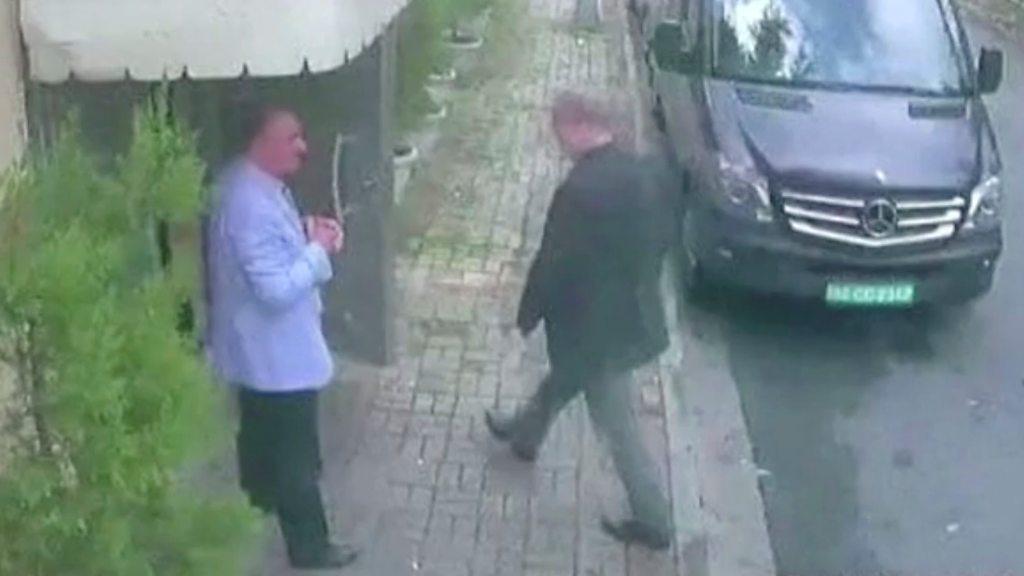
- Published10 October 2018
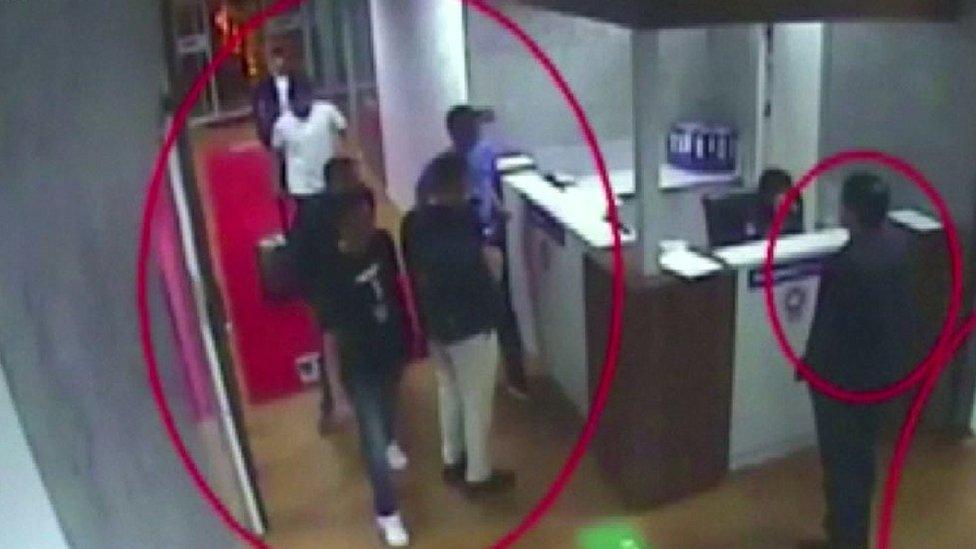
- Published9 October 2018
